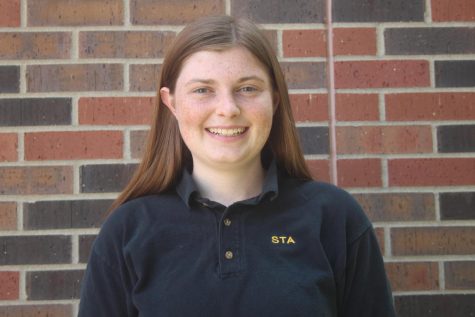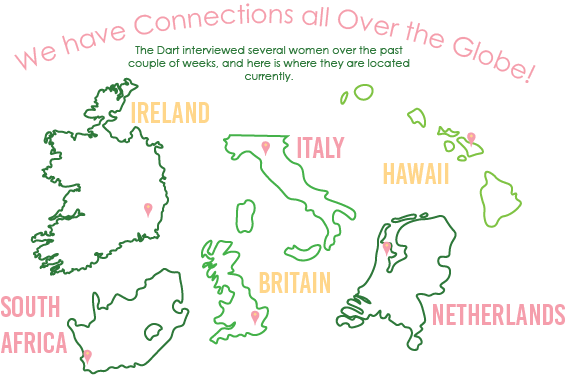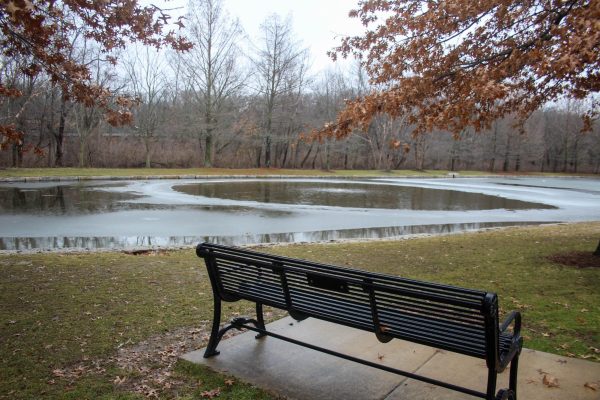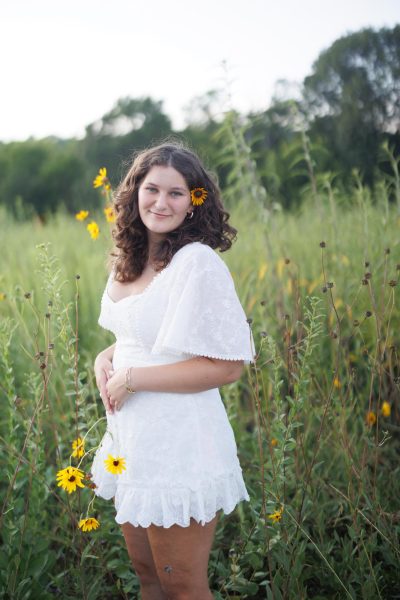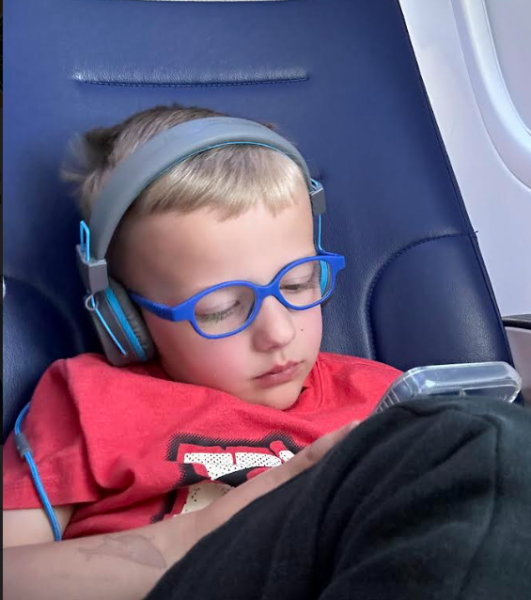Science teachers travel together on an eclipse trip
Science teacher Mary Montag waited two years with her colleagues for a disappointing eclipse.

The moon passes over the sun during the total solar eclipse Aug. 21. The science teachers traveled together to view the 2017 eclipse in St. Joseph. photo courtesy of Tribune News Service
September 21, 2017
It had finally come, the moment that had last occurred 38 years ago, and science teacher Mary Montag was sure to be ready for it. Up at 5 in the morning and packed with all her instruments to view the eclipse, she headed up to St. Joseph, Missouri, a place sure to be in the path of totality for a solar eclipse.
It was a moment that Montag had planned two years ahead for and one she and the other science teachers could not miss. So they packed into six different cars to make the journey north, excited for one of the biggest and most awe-inspiring astronomical events since 1979.
Former science teachers and new ones alike were invited to spend the day watching the 2017 eclipse from the house of Montag’s brother in eastern St. Joseph, including Terry Conner, Matthew Lewis, Maddie Lueke, Sarah Stranz and Alexa Varady along with a few others who could not attend.
“We really had a very nice time,” Montag said. “We all brought our computers and did work while we were waiting. We had lunch together, we all had meals together, so it was honestly a great day of fellowship.”
Some of the new teachers, including Lueke, weren’t invited on the trip until during a department meeting last year.
“I didn’t know the extent of how big an event this was going to be,” Lueke said. “But then after [Montag] said something about it, I went home and researched it and just knew that I had to go with them if I was going to get to experience something so incredible.”
But after waiting years to be able to see the eclipse, it turned out to be not as great as they would have hoped, as the weather interfered with most of their expectations.
“It was kind of like a big cosmic joke honestly,” Montag said. “After it was over, people were so brave but so disappointed. When it first started moving across, we had a clear view of [the eclipse], and then it clouded and rained.”
Although most of the group missed seeing the totality of the eclipse, Conner was able to break away from the group and chase small bits of sunshine peeking through the clouds.
“Connor [drove off],” Lueke said. “We were like, ‘Go, go!’ It was about 45 minutes before totality, and we just knew it wasn’t going to stop raining and that the clouds weren’t going to go away. While we love getting to spend time with her, we knew that this was something she couldn’t miss, so she and her daughters jumped in the car and drove, and they got to see it.”
Conner and her daughters eventually ended up watching the eclipse from a cornfield while the rest of the group stayed at the house, and some regretted not having the instinct to drive off with her.
“I guess some of us were a little more hesitant, or we thought it was going to clear or we weren’t as gung-ho as ‘jump in the car and get going’,” said Stranz. “Looking back on it, that’s probably what we should have done. It just happened so fast.”
With the cloud coverage, there was little to look forward to, but the science teachers still got to experience other aspects of the eclipse, including the darkness.
“For the full two and a half minutes, it was like night,” said Montag. “You would have needed a flashlight to see where you were going. People had their Christmas lights there, and they turned all their lights on so that when it got dark, it would look like nighttime. So to that effect, it was pretty incredible.”
Although the occasion was disappointing on some points, Montag, Lueke and Stranz all said they don’t regret going up to St. Joseph to view the eclipse.
For them, there is always the opportunity of seeing another total eclipse in 2024.
“I think the 2024 one is the one that’s going to go over southern Missouri and into Texas, and I’d like to go see that just because I was so close this time,” Lueke said. “And once you give me a little taste of something, I want more. So I definitely think I might travel for the next one.”
For Montag, there are still things to be excited for during the next eclipse, especially the fact that astronomers without borders has been recycling glasses to distribute them to poor children who can’t afford them for 2024 in places like Africa and central Asia.
News like this is what inspires her to have a positive mindset about the eclipse.
“Honestly, and this is not just me being a good sport about everything, even though it was cloudy, my thought is you always have to try,” Montag said. “I really don’t think partly cloudy, I really do think partly sunny in attitude. If school wouldn’t have been able to see it, it wouldn’t have been as rich for me.”



